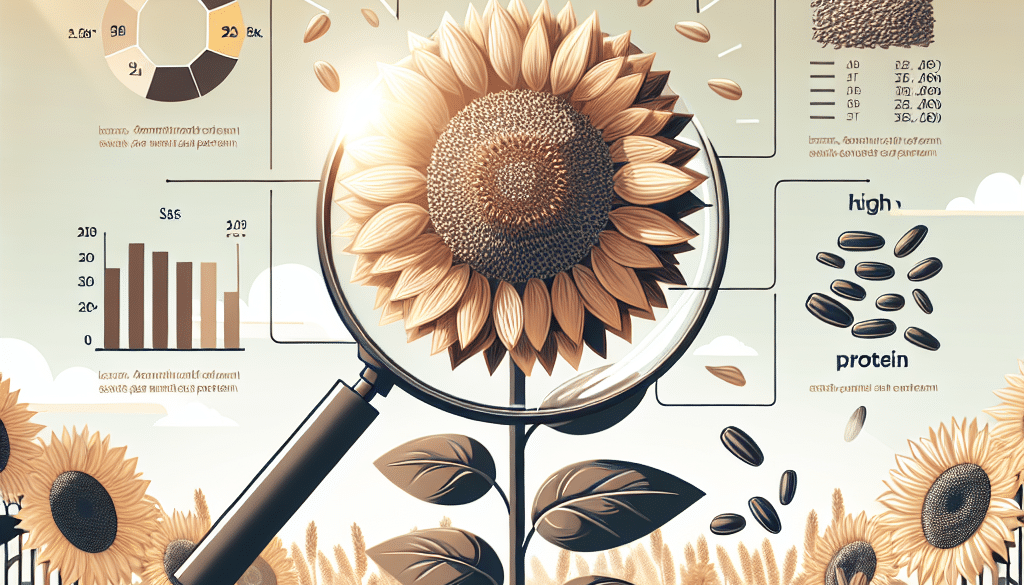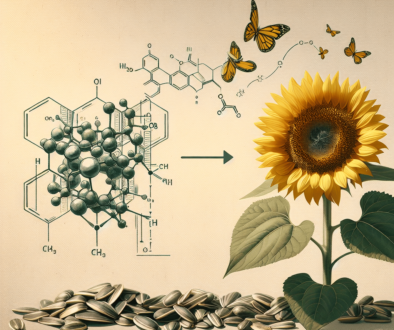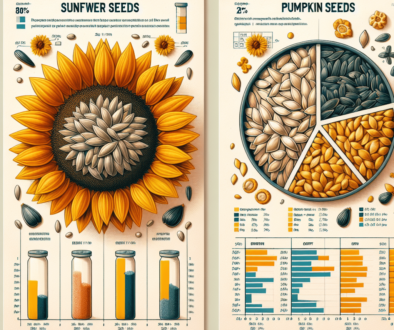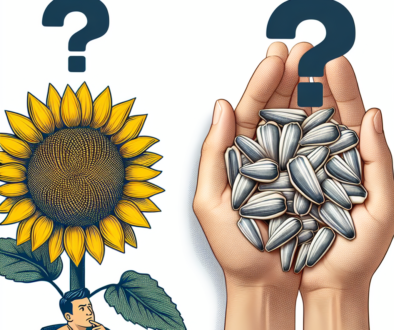Crude Protein in Sunflower: A Nutritional Guide
-
Table of Contents
- Crude Protein in Sunflower Seeds: A Comprehensive Nutritional Guide
- Understanding Crude Protein in Sunflower Seeds
- The Nutritional Profile of Sunflower Seeds
- Crude Protein Content in Sunflower Seeds
- Benefits of Crude Protein from Sunflower Seeds
- Comparing Sunflower Protein to Other Plant Proteins
- How to Incorporate Sunflower Seeds into Your Diet
- Understanding the Role of Amino Acids in Sunflower Protein
- Challenges and Considerations in Sunflower Protein Production
- Case Studies and Research on Sunflower Protein
- Future Trends in Sunflower Protein Consumption
- Conclusion: The Power of Sunflower Protein
- Discover ETprotein’s High-Quality Sunflower Protein Products
Crude Protein in Sunflower Seeds: A Comprehensive Nutritional Guide
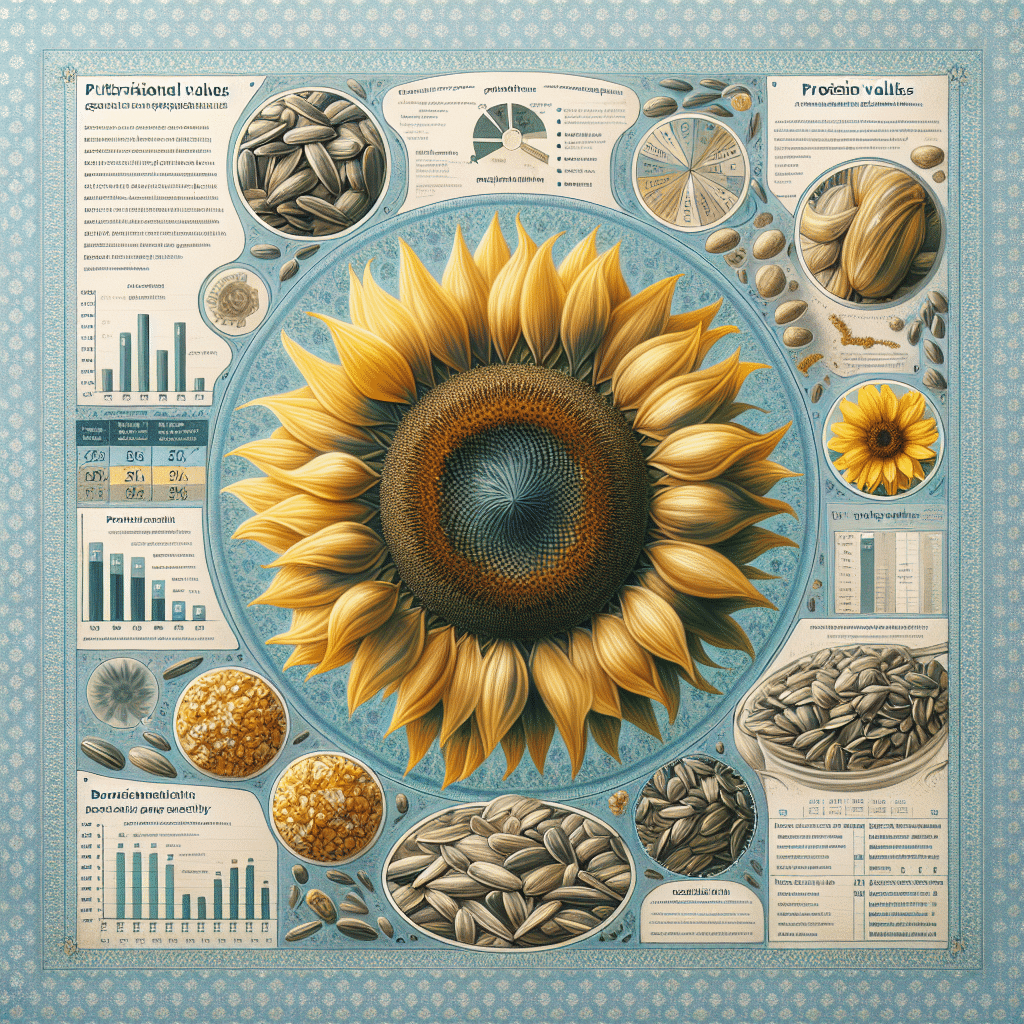
Sunflower seeds are more than just a snack; they are a powerhouse of nutrition, especially when it comes to their protein content. Understanding the role of crude protein in sunflower seeds is essential for both consumers and producers, as it impacts dietary choices and agricultural practices. This article delves into the nutritional profile of sunflower seeds, with a focus on crude protein, and explores how this component contributes to overall health and wellness.
Understanding Crude Protein in Sunflower Seeds
Crude protein is a measure of the total amount of protein in a food item, including essential and non-essential amino acids. It is a crucial nutrient for the human body, playing a vital role in building and repairing tissues, producing enzymes and hormones, and supporting immune function. Sunflower seeds, in particular, are a significant source of plant-based protein, making them an excellent option for vegetarians, vegans, and those looking to increase their protein intake from non-animal sources.
The Nutritional Profile of Sunflower Seeds
Sunflower seeds are not only rich in protein but also contain a variety of other nutrients that contribute to their health benefits. These include:
- Healthy fats, primarily polyunsaturated and monounsaturated fats
- Dietary fiber
- Vitamins, such as vitamin E and B vitamins
- Minerals, including magnesium, selenium, and zinc
- Phytochemicals with antioxidant properties
Together, these nutrients make sunflower seeds a well-rounded addition to any diet.
Crude Protein Content in Sunflower Seeds
The crude protein content in sunflower seeds can vary depending on the variety and growing conditions. On average, sunflower seeds contain about 20-25% protein by weight, which is relatively high compared to other seeds and nuts. This makes them an excellent source of protein for individuals looking to boost their intake through natural, whole-food sources.
Benefits of Crude Protein from Sunflower Seeds
Consuming crude protein from sunflower seeds offers several health benefits:
- Supports muscle growth and repair
- Helps in maintaining healthy skin, hair, and nails
- Contributes to a feeling of fullness, aiding in weight management
- Provides a sustainable and environmentally friendly protein source
These benefits make sunflower seeds an attractive option for a wide range of dietary needs.
Comparing Sunflower Protein to Other Plant Proteins
When compared to other plant proteins, sunflower seeds hold their own. They have a higher protein content than some common sources like grains and certain nuts, and they offer a complete amino acid profile when combined with other plant foods. This makes them a valuable component of a plant-based diet.
How to Incorporate Sunflower Seeds into Your Diet
Incorporating sunflower seeds into your diet is simple and versatile. Here are some ideas:
- Add them to salads for a crunchy texture
- Blend them into smoothies for a protein boost
- Use sunflower seed butter as a spread on toast or in recipes
- Include them in homemade granola or energy bars
- Enjoy roasted sunflower seeds as a snack
With these easy methods, you can enjoy the nutritional benefits of sunflower seeds in a variety of delicious ways.
Understanding the Role of Amino Acids in Sunflower Protein
Amino acids are the building blocks of protein, and sunflower seeds contain several essential amino acids that the body cannot produce on its own. These include lysine, tryptophan, and methionine. The presence of these amino acids in sunflower seeds enhances their value as a protein source in our diets.
Challenges and Considerations in Sunflower Protein Production
While sunflower seeds are a beneficial source of protein, there are challenges in production that must be considered:
- Climate and soil conditions can affect the protein content of sunflower seeds
- Crop rotation and sustainable farming practices are essential for maintaining soil health
- Processing methods can impact the nutritional quality of sunflower protein
Addressing these challenges is crucial for ensuring the continued availability and quality of sunflower protein.
Case Studies and Research on Sunflower Protein
Several studies have highlighted the potential of sunflower protein in human nutrition. Research has shown that sunflower protein can support muscle synthesis and may have benefits for heart health due to its lipid-lowering properties. These studies underscore the importance of including sunflower seeds as part of a balanced diet.
Future Trends in Sunflower Protein Consumption
As the demand for plant-based proteins continues to grow, sunflower seeds are poised to become an even more popular source of nutrition. Innovations in food technology may lead to new ways of incorporating sunflower protein into a variety of products, from meat alternatives to protein supplements.
Conclusion: The Power of Sunflower Protein
In conclusion, sunflower seeds are a nutrient-dense food with a high content of crude protein that offers numerous health benefits. They are a versatile ingredient that can be easily added to any diet, providing essential amino acids and other vital nutrients. With the growing interest in plant-based proteins, sunflower seeds are set to play an increasingly important role in global nutrition.
Discover ETprotein’s High-Quality Sunflower Protein Products
If you’re looking to incorporate high-quality sunflower protein into your diet or products, ETprotein offers a range of options that cater to various needs. Their sunflower seed protein is characterized by its neutral taste and non-GMO, allergen-free attributes, making it an excellent choice for consumers and manufacturers alike.
About ETprotein:
ETprotein, a reputable protein Chinese factory manufacturer and supplier, is renowned for producing, stocking, exporting, and delivering the highest quality organic bulk vegan protein and plant proteins. They include Organic rice protein, clear rice protein, pea protein, clear pea protein, pumpkin seed protein, sunflower seed protein, mung bean protein, etc. Their offerings, characterized by a neutral taste, non-GMO, allergen-free attributes, cater to a diverse range of industries. They serve nutraceutical, pharmaceutical, cosmeceutical, veterinary, as well as food and beverage finished product distributors, traders, and manufacturers across Europe, USA, Canada, Australia, Thailand, Japan, Korea, Brazil, and Chile, among others.
ETprotein specialization includes exporting and delivering tailor-made protein powder and finished nutritional supplements. Their extensive product range covers sectors like Food and Beverage, Sports Nutrition, Weight Management, Dietary Supplements, Health and Wellness Products, and Infant Formula, ensuring comprehensive solutions to meet all your protein needs.
As a trusted company by leading global food and beverage brands and Fortune 500 companies, ETprotein reinforces China’s reputation in the global arena. For more information or to sample their products, please contact them and email sales(at)ETprotein.com today.

